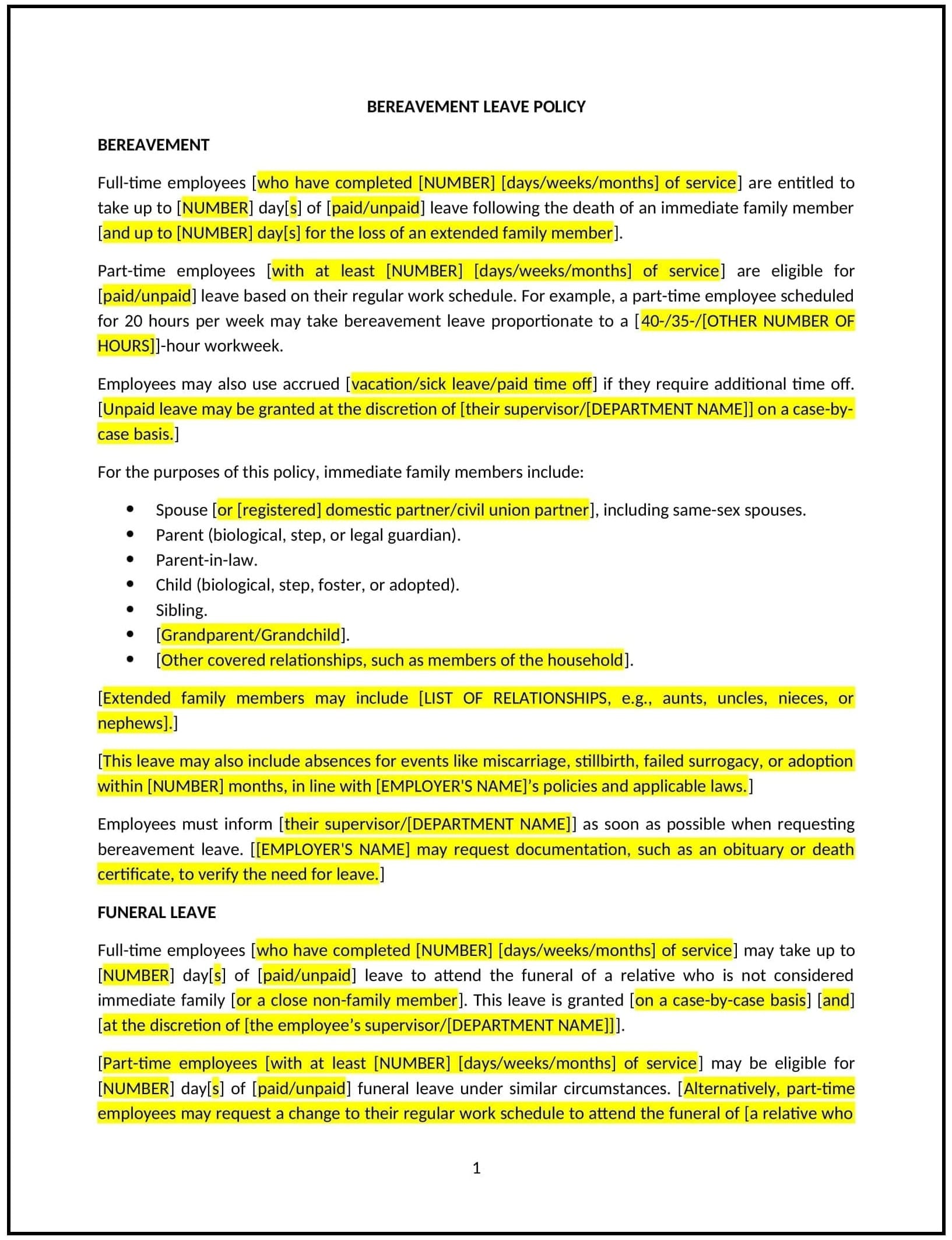Bereavement leave policy (Tennessee): Free template
Got contracts to review? While you're here for policies, let Cobrief make contract review effortless—start your free review now.

Customize this template for free
Bereavement leave policy (Tennessee)
This bereavement leave policy is designed to help Tennessee businesses create guidelines for employees who need time off to grieve the loss of a loved one. It outlines procedures for requesting leave, documentation requirements, and job protection.
By adopting this policy, businesses can support employees during difficult times, foster a compassionate workplace culture, and align with general best practices.
How to use this bereavement leave policy (Tennessee)
- Define eligibility: Clarify which employees are eligible for bereavement leave, such as full-time or part-time staff.
- Set leave duration: Specify the amount of leave provided, such as three to five days, depending on the relationship to the deceased.
- Establish request procedures: Provide steps for employees to request bereavement leave, including notice requirements and documentation.
- Address paid vs. unpaid leave: Explain whether the leave is paid or unpaid, depending on the business’s policies.
- Ensure job protection: Guarantee that employees will return to the same or an equivalent position after taking leave.
- Train managers: Educate supervisors on handling bereavement leave requests and maintaining workflow during employee absences.
- Review and update: Assess the policy annually to ensure it aligns with evolving business needs and employee expectations.
Benefits of using this bereavement leave policy (Tennessee)
This policy offers several advantages for Tennessee businesses:
- Supports employees: Demonstrates compassion and support for employees dealing with the loss of a loved one.
- Fosters workplace culture: Builds trust and loyalty by showing employees that their personal challenges are valued.
- Reduces turnover: Encourages employee retention by providing support during difficult times.
- Maintains productivity: Provides clear guidelines to minimize disruptions during employee absences.
- Aligns with best practices: Offers a structured approach to managing bereavement leave.
Tips for using this bereavement leave policy (Tennessee)
- Communicate the policy: Share the policy with employees and include it in the employee handbook.
- Provide training: Educate managers on handling bereavement leave requests and maintaining workflow during employee absences.
- Monitor compliance: Regularly review leave requests to ensure adherence to the policy.
- Address issues promptly: Take corrective action if leave requests are mishandled or denied improperly.
- Update regularly: Assess the policy annually to ensure it aligns with evolving business needs and employee expectations.